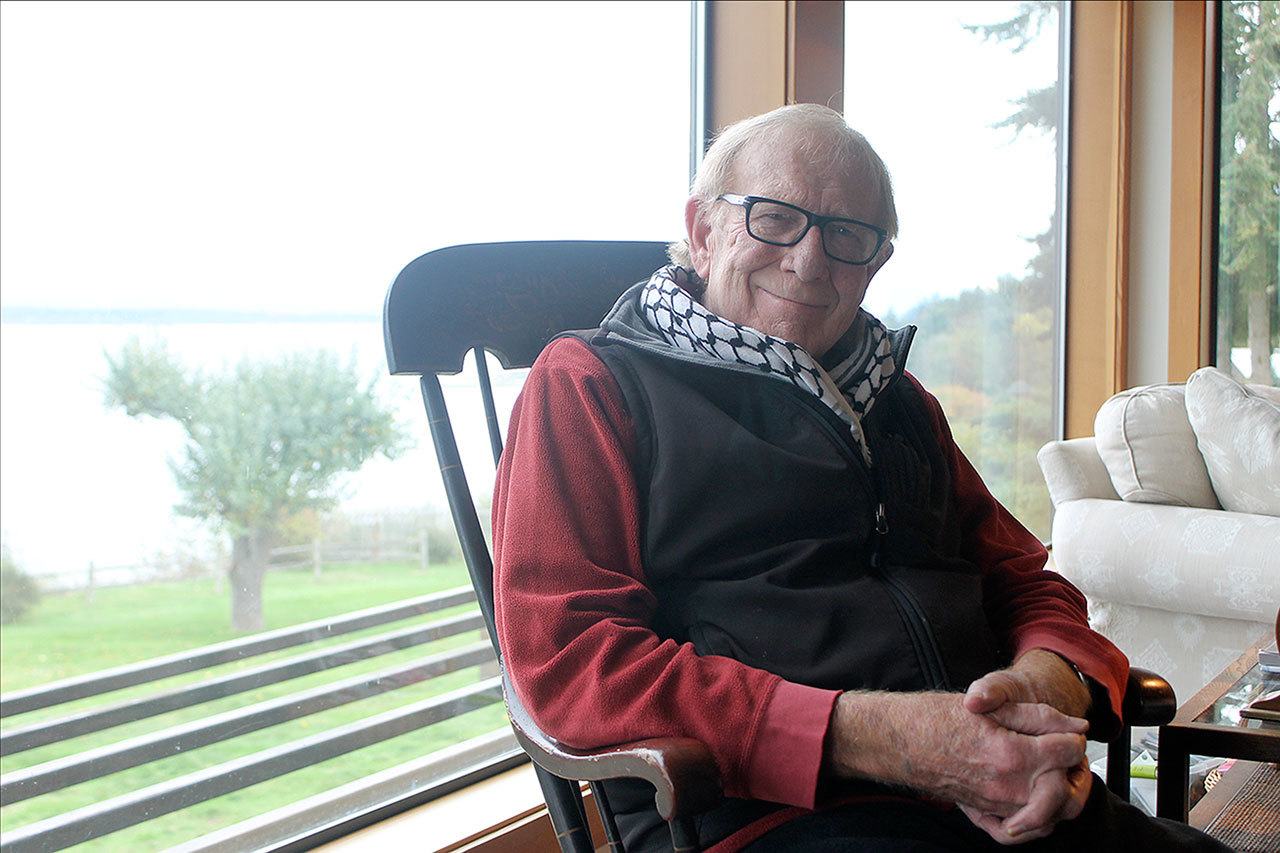Serendipity and immersion have been the name of the game in Dan Prewitt’s life.
Prewitt spent nearly half a century working with the American and International Red Cross in the emergency management field where he saw many aspects of life: the good, the bad and everything in between.
He’s witnessed war, starvation, genocide and natural disasters. While what drives the response by Red Cross to these events is problematic and sometimes painful, it can also be rewarding, he said.
Prewitt, who is originally from Iowa and now lives in Langley, served a variety of roles in both the American and international branches of Red Cross, from an assistant national director for preparedness to the head of delegation and country representative. He’s served in senior or lead operational positions in over 20 disaster operations in the United States and its territories, including Guam, Hawaii, Puerto Rico and the U.S. Virgin Islands from 1973 to 1991, and 12 international missions in nine countries from 1985 through 2008.
It was when his feet were on the ground that Prewitt felt honored; he was in the thick of it all, where unplanned events happen at random times.
“That was my privilege at a personal and professional level,” Prewitt. “There’s some bad times, really bad times, but those are offset by the good times.”
Prewitt’s passion for the work has been clear in the eight years Langley resident John Lawson has known him. In addition to his many years with Red Cross, Prewitt also volunteers weekly at Good Cheer in Langley.
“He gets very emotionally involved wherever he is,” Lawson said. “I’ve listened to him tell stories where he has tears in his eyes.”
Prewitt’s long career with Red Cross wasn’t something he planned. He served in the Air Force for four years, fulfilling roles as a cartographer and member of an electronic intelligence division, and made his way to the Pentagon.
After his service, he took a temporary job with the American Red Cross. His first few years were relegated to the Red Cross headquarters in Washington, D.C., and after a while he became unsettled. While proud of his work, he felt it wasn’t exciting or challenging, so he began requesting temporary assignments overseas.
One of Prewitt’s first international assignments came in 1975 when he ran a refugee program after Saigon fell to the North Vietnamese Army.
It was his first experience dealing with large numbers of multi-cultural people, where he was tasked with processing the refugees into temporary housing in places like Guam. The refugees would stay for two to three months before a more permanent solution could be found.
Another assignment came in the mid-1980s when he participated in food relief operations for the Sahel famine in North Africa. He and others also helped them to rebuild the capacity to feed themselves.
“That really got my juices going,” Prewitt said. “I’ve never been a headquarters type.”
“It’s important to be on the ground,” he added.
Every experience Prewitt had was also different from the last, whether it was natural disaster relief operations or conflict-oriented. Modifying and adapting to each situation were among the challenges.
He was the head of delegation for relief efforts during the genocide in Rwanda in 1994. Over 350,000 people had fled to Tanzania, where Prewitt would be stationed for the next year. The logistics of setting up basic necessities such as water, food, and sanitation in time were cumbersome.
“We couldn’t save them all,” Prewitt said. “When you’re talking about cramming people into an area smaller than Langley, you’re going to get diseases.”
His last assignment took him back to Africa in Niger for a drought operation.
Prewitt’s work has offered him perspective. He feels Americans need to be more global in their outlook of the world, and be empathetic as opposed to challenged by it.
“I’m a patriot, I suppose you could say, but a patriot in a sense that I want our country, our culture to come to terms with the fact that it’s not an island,” Prewitt said. “We need to become more global in our approach. There’s just too many challenges.”



